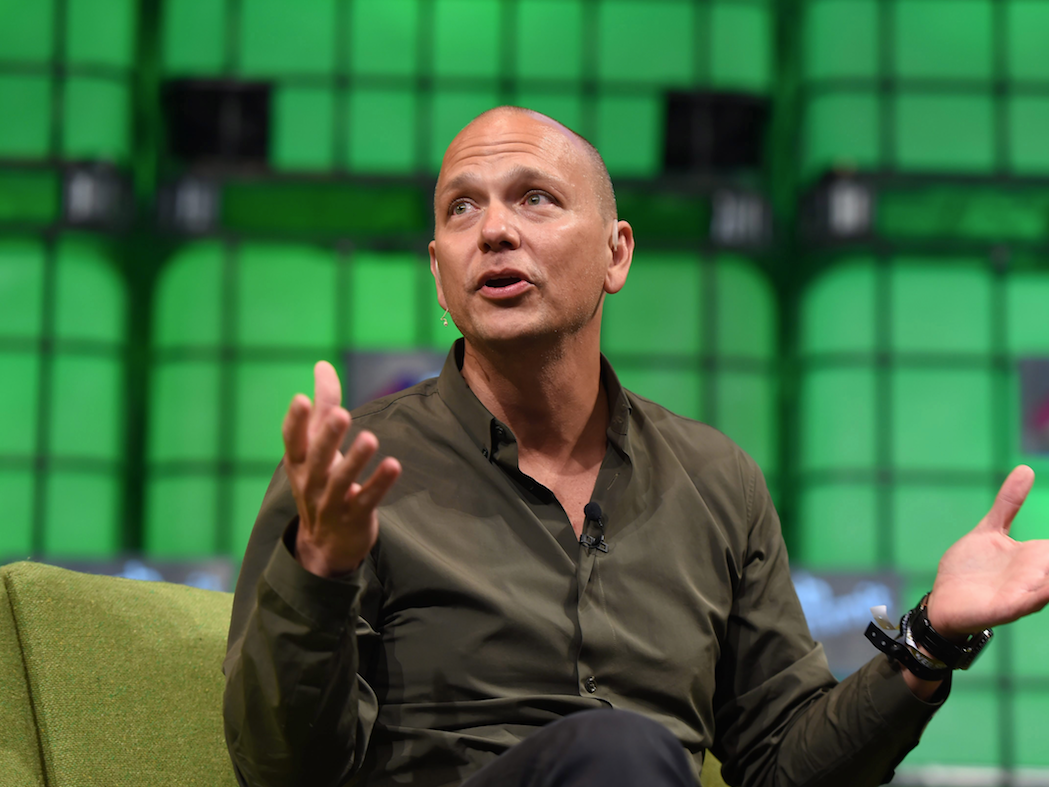- iPhone and iPod co-creator Tony Fadell criticised Apple and other Silicon Valley firms for not doing enough to tackle smartphone and internet addiction in children and adults.
- Fadell wrote that Apple and other firms had become good at manipulating people into “another dopamine hit,” and that they now needed to provide tools to help people counteract their addiction.
- Fadell’s comments follow an open letter published by two major Apple investors pressuring the firm to do more to tackle iPhone addiction in children.
The co-creator of the iPod and iPhone has publicly criticised Apple and other Silicon Valley firms for their role in device addiction, arguing that adults and children alike are slaves to their phones and social media.
Tony Fadell was on the team that worked on the first iPhone, and is one of the key inventors of the iPod. He went on to found smart thermostat firm Nest, which he sold to Google for $3.2 billion (£2.3 billion).
In an astonishing 10-tweet tweetstorm sent early on Monday morning, Fadell quoted an earlier story about two investors that are pressuring Apple to tackle device addiction, and said all Silicon Valley firms needed to take similar responsibility.
He wrote in one tweet: “Apple Watches, Google Phones, Facebook, Twitter – they’ve gotten so good at getting us to go for another click, another dopamine hit. They now have a responsibility & need to start helping us track & manage our digital addictions across all usages – phone, laptop, TV etc.”
He said tech companies would probably face government regulation if they didn't provide better tools for people to manage how much time they spend with their devices.
Fadell joins a growing group of Silicon Valley executives who have spoken out about their former employers.
Justin Rosenstein is a former Facebook executive who, somewhat ironically, is credited with creating the "Like" button. He described "likes" as "bright dings of pseudo-pleasure" to The Guardian in an interview.
Another ex-Facebook executive, Chamath Palihapitiya, said he felt "tremendous guilt" for his role at the social network, though he later walked back some of his comments.
Apple has yet to comment on the original story, which involved two activist investors asking Apple to research the harmful effects of excessive iPhone use on children.
There is a growing body of research which draws links between excessive phone and social media use, and depression, behavioural problems, or other health issues in children.
Fadell said it wasn't just children who had to combat device addiction, and that adults needed help managing phone use too.
Here's Tony Fadell's full tweetstorm:
2/10
Device addiction is real. “Driving under the influence” = “Texting & Driving”
Each day 9 people get killed, 1000s hurt because of it:https://t.co/QWqX9LgwUV https://t.co/wWBQNMdsYK— Tony Fadell (@tfadell) January 8, 2018
3/10
UK adults spend 8+ hrs on screens/day, children 6.5 hrs. Don’t ignore the link betw social media use & depression. 34% of people checked Facebook in the last 10 minutes.
The stats are driving digital detox movements globally:https://t.co/RxhiUcvVn8 https://t.co/wWBQNMdsYK— Tony Fadell (@tfadell) January 8, 2018
4/10
Admitting you have an addiction is Step 1.
Step 2 is getting out of the environment facilitating the addiction: bars, casinos,, etc. But...our screens are big part of our lives. They’re our work tools, family calendars, emergency devices - we truly can’t live without them. https://t.co/wWBQNMdsYK— Tony Fadell (@tfadell) January 8, 2018
5/10
We need to control our own environment & we need information:
Step 1: We need to know where the line is & when we’ve crossed over to addiction.
Step 2: We need our ongoing usage habits reflected back to us.
Our smartphone “bottle” needs to tell us we’ve had enough. https://t.co/wWBQNMdsYK— Tony Fadell (@tfadell) January 8, 2018
6/10
We need a FitBit or Apple Health for our entire life - not just physical activity, but digital too.
Captured in one place, using calendar that shows the history of out 24 hr activity patterns, and a way to schedule our future activities (physical & digital) https://t.co/wWBQNLVRAa— Tony Fadell (@tfadell) January 8, 2018
7/10
Apple Watches, Google Phones, Facebook, Twitter - they’ve gotten so good at getting us to go for another click, another dopamine hit. They now have a responsibility & need to start helping us track & manage our digital addictions across all usages - phone, laptop, TV etc. https://t.co/wWBQNMdsYK— Tony Fadell (@tfadell) January 8, 2018
8/10
They’re the only ones who can do this - they own the OS & app ecosystem. They need to do more, like single-use device modes: when I’m reading an ebook on my tablet, listening to music (ala iPod)…no email or facebook notifications, no texts. https://t.co/wWBQNMdsYK— Tony Fadell (@tfadell) January 8, 2018
9/10
They need to give access to that information to 3rd-party apps, so that we can manage & limit our time on them, control notifications, etc. There will a lot of great startups that will create useful tools to help us become balanced - digital & analog - again… https://t.co/wWBQNMdsYK— Tony Fadell (@tfadell) January 8, 2018
10/10
With (or without) these tools, it’s up to us to act:
Screen time rules, living in the moment, screen-free meals, relearning analog objects like books & writing & sketching, tech-free days for the family to be together. (And yes it’s ironic I’m tweeting this…) 🙂 https://t.co/wWBQNMdsYK— Tony Fadell (@tfadell) January 8, 2018

